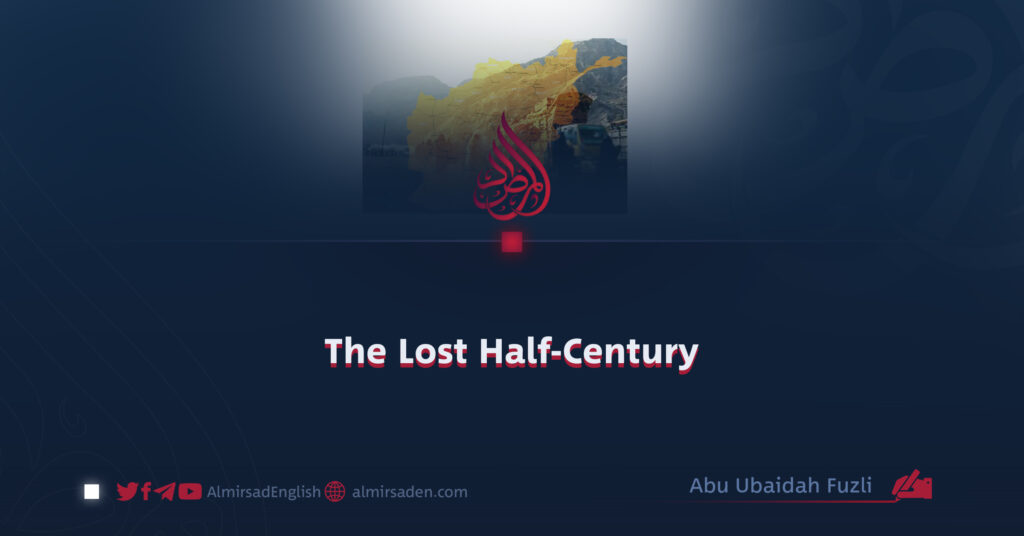By Abu Ubaidah Fuzli
For decades, the very mention of Afghanistan has evoked the same weary images across the world: Is that not the land of endless wars? Is that not the country sunk in poverty? The world knows well who bears responsibility for these tragedies. Yet we Afghans, heirs to a land whose history shines with struggles for freedom and sacrifices for honor, have endured one crisis after another, often from within our own borders.
The roots of these calamities reach beyond us, into the hands of foreign intelligence agencies and the ambitions of outside powers. A single example suffices: the stage carefully set for the Soviet invasion, which dragged our homeland into a devastating proxy war. Even the Mujahideen, after their victory, could not establish a unified government that reflected the will of the people. Divisions multiplied, scarring the nation’s destiny in ways that may echo for centuries. Among the countless wounds inflicted, three stand out with particular force.
1. The groundwork for U.S.-led occupation
Backed by global powers with wealth and military might, Afghanistan was seized under the banner of “liberation.” What followed was a reign of terror so dark that even many of its perpetrators could not keep silent. During his presidency, Hamid Karzai admitted repeatedly in public interviews that NATO forces stormed homes by night, imprisoned civilians without warrants, and tortured them with impunity. Afghan soil itself was reduced to a proving ground for American weaponry, with no regard for the children killed, the families shattered, or the villages erased. Nowhere was this more grotesquely displayed than in the detonation of the Mother of All Bombs (MOAB, GBU-43/B) on our land.
2. The corruption of the republics
In the years of republican rule, corruption spread like a plague, consuming state institutions both in spirit and in substance. Ministries became dens of theft, with Defense and Interior at the center of it all. General ranks were even awarded to girls, whom people mockingly dubbed “liver generals.” After the fall of that regime, countless voices emerged recalling the republic’s moral and political rot. Some openly confessed that in the Foreign Ministry, a woman’s physical appearance alone determined her appointment. For many Afghans, those years remain among the bitterest chapters of their lives.
3. The assault on Afghan culture
Afghanistan has always carried a distinct and celebrated culture, recognized and praised by historians. Yet under occupation it was eroded, mocked, and in many places deliberately uprooted. The family was the first casualty, followed quickly by the wider society. Blind imitation of foreign trends became commonplace. Men shaved their beards in the style of Lenin or grew mustaches after the fashion of Hitler. Women were driven into the same current, appearing unveiled in public under the banner of “democracy.”
The media, too, became a vehicle of corruption, each outlet racing to see who could peddle the most immorality under the false label of “freedom of expression.” Programs like talent competitions, modeling shows, and Afghan Star showcased young women dancing on screens, stripping modesty from public life in the name of modernity.
It must be remembered that in this lost half-century, the true victims were none other than the Afghan people. Our nation was steeped in poverty, whether economic, cultural, or educational. The examples given above are but fragments; a full reckoning of these wounds would take years to recount.
What is certain is that half a century was squandered. The last twenty years alone could have transformed Afghanistan. Roads and canals could have been built, natural wealth harnessed, and industries established. Instead, treacherous leaders bled the country dry, pocketing millions and even billions while their people suffered. True to the proverb, “A traitor always fears,” they abandoned the nation at its moment of reckoning, fleeing rather than facing justice.
We Afghans have spent half our lives in war, while our land was trampled by invaders. Yet today, by the grace of Almighty Allah, with the victory of the Islamic Emirate of Afghanistan (IEA), peace and security have returned to both people and soil. Great national projects such as the Qosh Tepa Canal, CASA-1000, and TAPI are underway, offering hope and opportunity.
Over the past four years, the Ministry of Public Works (MPW) has revived and implemented initiatives of immense scale, projects worthy of being called part of a thousand-year legacy. For these blessings we give thanks, and in them we see a promise that Afghanistan may finally step onto the path of stability, dignity, and lasting progress.
